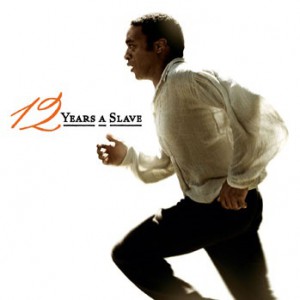Movie Review: 12 Years a Slave

AHA Communications Assistant Christian Hagen calls 12 Years a Slave, a new movie starring Chiwetel Ejiofor, Michael Fassbender, and Brad Pitt, a “challenging yet utterly essential” film.
The implications and horrors of slavery have been touched on time and again by Hollywood, with tales ranging from the political (Lincoln) to the epic (Roots) to the violently fantastical (Django Unchained).
But rarely has a film tackled the subject with such reality and nuance as director Steve McQueen’s 12 Years a Slave, the harrowing true story of Solomon Northup, a free black man from New York who was tricked, kidnapped, and sold into slavery for more than a decade. The film captures an artistic and humanistic beauty in its construction, and hauntingly captures the spirit of Northup’s memoirs.
In the process of telling a story of deep sorrow and complex history, 12 Years also accomplishes a surprising feat: It explores the positive and negative applications of religion in slavery, ultimately revealing that it is human nature, not spiritual ideologies, which guides the actions of the characters. Northup’s slavers quote Bible verses to justify their cruelty, while many of his fellow slaves use prayer to cope with their circumstances. In the end, the survival of the oppressed comes down to community and the help they can provide one another. The overtones of dogma’s hope and its errors drive the film beyond a simple recitation of facts and into a profound question of the roles of morality in our society.
Anchoring the film is a brilliant performance by Chiwetel Ejiofor as Northup, who shines through the film’s staggering cast (including Benedict Cumberbatch, Michael Fassbender, Paul Dano, Brad Pitt, and Paul Giamatti, among many others) with a portrayal as a flawed man whose endurance lies in his personal strength and his hope that one day he might be reunited with his family.
But to call this an actor’s exercise would be a detriment to the film’s incredible power. Beyond a keen visual eye and a stirring score, the film is a portrait of a time in our nation’s history we have long tried to repress from our collective memories. And a stark portrait it is; the vicious treatment Northup and the other slaves endure is nothing short of appalling.
A particularly heartbreaking scene midway through Northup’s enslavement shows him getting into an argument with one of his overseers (Dano). Angry, the overseer and his friends hang Northup from a tree, leaving him just enough rope that he can survive by standing on his toes in the mud. Though the overseer is sent away before completing the murder, Northup is left by his owners to hang the rest of the day.
McQueen films the experience with an impartial static shot that lasts several minutes, as Northup struggles to remain standing long enough to stay alive while the rest of the plantation carries on around him, trying to pretend that nothing is wrong. As an audience member, you can only hold out your hands and implore the characters in the background to stop what they’re doing and cut the rope to set him free.
And that is the most important lesson of 12 Years a Slave: We cannot pretend that these atrocities didn’t happen, nor that others like it happen today, without being culpable in their outcomes. Northup’s story is an exception, the rare man able to tell the story of his loss of freedom. The far more common tale is that rarely told, but which appears throughout this film in the lives of those Northup comes to know. It’s the story of a race of people in chains they cannot break alone.
What could have been a romanticized snapshot of a time long gone instead stands as a reminder that the past is not dead, that bondage should not be easily forgotten, and that those who can justify the enslavement of another can justify anything, no matter how horrible, and still be allowed their freedom. It’s a deeply challenging yet utterly essential film.
